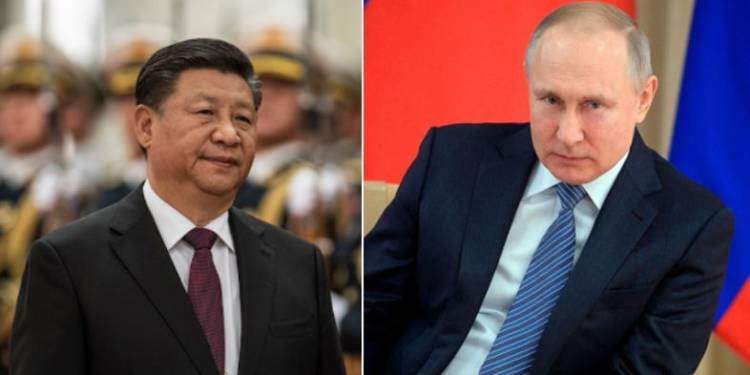While the Western analysts and geo-strategic observers keep clubbing China and Russia as leaders of the Communist-Authoritarian world, TFIPOST has been relentlessly reporting how Russia and China are no best friends. Despite their ideological similarities, China and Russia only share a shallow “strategic axis of convenience”, beneath which, territorial tensions and power competition over the Russian Far East, access to the Arctic, Central Asia and Eastern Europe dominate the Sino-Russian relationship.
And now Moscow is making its displeasure with China known to the world at large. Russia is playing the India card for countering Beijing’s growing presence that tends to directly militate against Russian interests. In all areas of Sino-Russian conflicts, Moscow is bringing in New Delhi to multiply its own standing against an expansionist China.
Russia has been trying to pull India to its side in its strategic competition with China for quite some time now. Take for instance the Russian Far East, about which Moscow has grown apprehensive due to excessive Chinese influence in the sparsely populated and resource-rich region. Through this vast territory, China is also trying to achieve its ambitions of becoming a “near-Arctic state”.
However, last year, India extended a $1 billion line of credit to Russia for the development of its far-East region. India is also looking to develop a sea route linking India’s Chennai with Russian Far East city of Vladivostok that will pass through the South China Sea, securing the Russian Far East territory and at the same time needling China.
When China staked claim upon Vladivostok this year, Russia again leaned upon India to hit back at China. Moscow joined hands with New Delhi for a naval exercise with India near the Strait of Malacca, a strategic and narrow chokepoint in the Indo-Pacific which is considered Beijing’s weak spot in the region. With the help of India, Russia is telling China that Moscow won’t desist from undermining Beijing in its own backyard if the Dragon tries to flex its muscles in the Russian Far East and the Arctic region.
Russia also wants India to become a close partner in Moscow’s exclusive sphere of influence- Eurasia, and the Nordic-Baltic countries. China has been eating into this part of the world which Russian President Vladimir Putin has always regarded as Moscow’s legitimate strongholds.
When it comes to Eurasia, the Russia-led initiative called the Eurasian Economic Union (EAEU), an economic union of post-Soviet States located across Eastern Europe, Central Asia and Western Asia has not been able to match Xi Jinping’s flagship Belt and Road Initiative (BRI) investments. Consequently, Russia wants India to enhance its presence in this region to balance outgrowing Chinese influence.
China’s economy is eight times larger than Russia’s and therefore Moscow has been pinning its hopes on a Free Trade Agreement between the Eurasian Economic Union (EAEU) and India.
Within Central Asia itself, Russia is irked by how Beijing has started claiming half of Tajikistan’s territory, and therefore it isn’t merely incidental that when India’s Defence Minister Rajnath Singh recently visited Moscow to attend a crucial meeting of the Shanghai Cooperation Organisation (SCO) defence ministers, he also met his counterparts from Central Asian countries of Uzbekistan, Kazakhstan and Tajikistan.
Further West in the Nordic-Baltic countries of Europe, an area of extensive Russian cultural influence, Moscow is again benefiting from rising Indian presence. While Beijing’s tentacles are spreading into this part of the world, bilateral interactions between India and the eight Nordic-Baltic countries have intensified within the past few months.
Russia always wanted to take China head-on, but it never really had an option. However, one of Russia’s oldest and most trued friends, India is handing it the option. Putin trusts India and knows that Prime Minister Modi won’t backstab him, unlike the Chinese President Xi Jinping. He is ready to share influence with New Delhi, rather than letting the Dragon eat into what Russia considers its exclusive sphere of influence.
Till now, it was Russia’s compulsion to overstate the areas of cooperation with China and downplay some serious Sino-Russian tensions, because Europe and the western world have been marginalising Moscow. But now, the Kremlin feels that it doesn’t have to pretend any longer. Every time China tries to extort Russia due to the latter’s isolation by the rest of the world, Moscow now plays the India-card telling China how it must remain careful while two gigantic enemies in India and Russia on both its sides.
Of all the diplomatic setbacks that China is facing, it is Russia’s “India-card” that has sent it into a state of shock.








